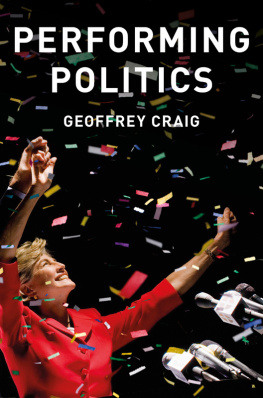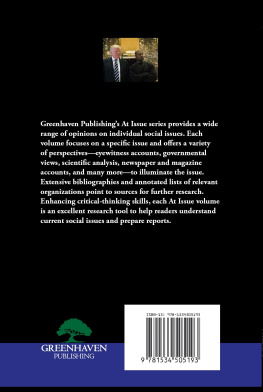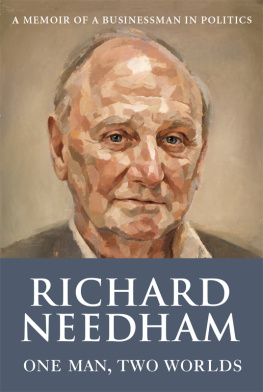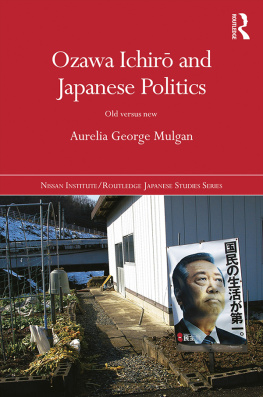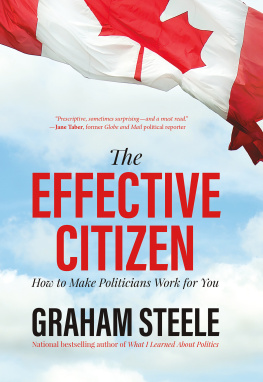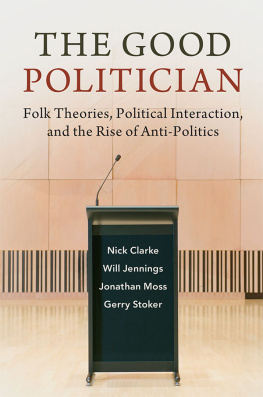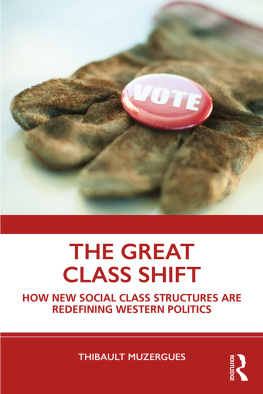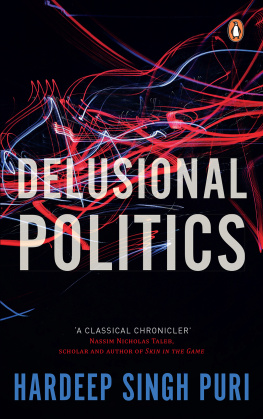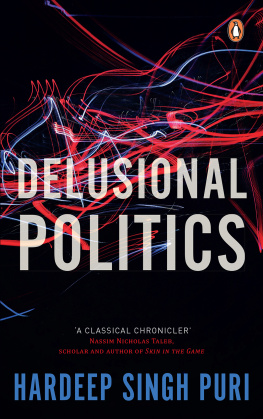What Makes a Politician
RWITWIKA BHATTACHARYA-AGARWAL

To my husband who has always believed in me.
To my Baba and Ma who are my pillar of support.
And to my Jethu and Mummum who have always been there
CONTENTS
SECTION II
Ensuring Professional Growth
SECTION III
Preparing Emotionally for Politics
I have had the pleasure of working with the Swaniti Initiative to strengthen the healthcare infrastructure in my constituency, Kendrapara, through deployment of mobile health units. Rwitwika Bhattacharya, the author of this book, is also the founder of Swaniti. The existence of Swaniti, an organization that assists MPs in their constituency work, is a sign of the changing times and also, the reason for the need of this book.
The political scene is gradually evolving in our country. More politicians are equipping themselves with teams with the necessary domain knowledge. Simultaneously, there is now a growing ecosystem of people with skills from various backgrounds, especially younger citizens. Responsibilities are being delegated to people with expertise; transferable skill sets acquired by their prior experiences are being put to the best use in the political domain. There are various opportunities in the form of fellowships, consultancy, advisory and grassroots-level positions available for those who want to dip their toes in this field. There are more chances than ever before to rise on merit alone at the intersection of politics and policy. This is a new revolution of kinds an actual democracy where there is space for everyone with the spirit of public service.
Now is an exciting time to be in the policy space with new, improved organizational structures and systems materializing. This book speaks to the aspirations of those who aim to serve at the national level. It is a complete guide covering the very basics of our political system to building your brand, networking and even financially supporting yourself to help you on your journey. She has made a good attempt at defining the scope and nature of a parliamentarians work and the various stakeholders she/he has to juggle with. The book is even more useful as a lot of our system is informal and closed in nature.
The result that is this book is built upon extensive research and cites many real-world examples. It has introspection exercises at the end of chapters providing for application of the knowledge, and it even points to other relevant resources for further reference. Rwitwika hasnt shied away from controversial topics like the prevalence of identity politics, lobbying or the fewer number of female politicians. Necessary emphasis has been given to the importance of intangible skills like charm, good communication and mobilization skills and the intangible costs like the effect on private life.
This book is a welcome move away from caricaturing, stereotyping or straightforward dismissing the work of public officials. The core sentiment of public service has been highlighted as a motivation. Anyone remotely interested in knowing or participating in the policy sphere should consider reading this.
Baijayant Panda
Member of the Lok Sabha
Why the Book?
My tiny hands fit in the palm of my fathers hand as he holds it lightly, taking me along to the red-bricked offices of ministers, high-ceilinged residences of parliamentarians, and congested party offices all over Delhi. My father is in the field of politics, and I have been following him around since I was ten years old. My parents believed in giving me exposure to as many things as possible. Only then will you know how the world works, my mother would say with confidence. So I found myself encouraged to attend my fathers meetings with high-powered politicians from a very young age. Make sure you also contribute a bit to the conversation, my mother would say gently. In each meeting, I would find the confidence to ask a few questions.
When my father asked me to accompany him to meet with an upcoming Member of Parliament (MP) one lazy summer afternoon, I didnt think much of it. We headed to Ashoka Hotel, a standard meeting venue, sat down comfortably in the coffee shop that smelled like wet carpet in the middle of May. The young MP was on time and discussed politics and possibilities with my father over the next hour. As they began to wrap up their discussion, I remembered my mothers commandment and quickly asked him the only question I could think of:
What got you interested in politics and how did you become an MP?
I thought it was a simple question that would be interesting for him to answer; after all, he could see this as an opportunity to mentor a young girl of eleven. Instead, he frowned at me, looking as though I had said something preposterous. A long silence followed. He wiped that look off his face and replaced it with a patronising frown. He tilted his head back and after a slow sip of his coffee, answered: Why dont you grow up a bit, finish school, college and get a job and then we can speak again? You might be ready for an answer then. He seemed satisfied with his answer and got up to leave. He saw nothing wrong with what he had said. However, I felt insulted and that exchange made a strong imprint on my memory.
I dont know if it was the arrogance of being a first time parliamentarian, the excitement of making it big at a young age, or disregard for a younger person, but he had felt it was appropriate to dismiss the question. The more I thought about the fundamental question of how one gets in to politics to emerge as an electoral representative nationally, the more intrigued I was. The young MP monopolized information on political success consciously. He belonged to an exclusive club of successful men and women who had made it in national electoral politics, and only they knew how to enter and rise up in politics.
After that meeting, I began to ask politicians I met while with my father about their entry into politics. The response was consistent in almost every scenario. Most Indian politicians I asked would quickly skim over the phase in their lives where they quit full-time jobs to pursue political passions and instead focus on that part of their careers after they had gotten in to politics. Their answers would be something like: I was pulled to public service and joined Party X. Eventually, I got a ticket and contested for an election. But after I won the election, I wanted to do more for my constituency. The gap between deciding to join a party and running for office was captured with the word eventually.
This is true not only of parliamentarians and what they say; there is an equally large gap found in political biographies. Whether it is a biography of Prime Minister Narendra Modi or Narasimha Rao, little attention is devoted to the transition into politics; instead, there is disproportionately large discourse around their journeys after they enter in to politics. Having worked with American senators and elected representatives, I feel that Indian politics stands in sharp contrast to western democracy. For example, in the US, there is an established process of how talent is scouted, offered a ticket for respective parties, funded for candidacy and brought in to office.
In 2010, a classmate of mine from Florida decided to contest for the local representatives seat. He had served in the armed forces, worked for a top firm and graduated from a premier business school. He wanted to give back to his community now. He went back to Florida and collected over a thousand signatures from people who endorsed his candidacy. He took this list to the head of the local Democratic Party and showed them proof of community support. The party took a few weeks to run a background check on him and gave him the clear to run for the primaries. As he was a particularly promising candidate, the party helped him raise money and connected him to the right community leaders. He went on to win the primaries and the election seat at large. The party members had coached and supported him throughout the process. Such a well-formed structure does not seem to exist in India. Systems are informal and often mean that the most talented individuals do not end up pursuing politics.
Next page

